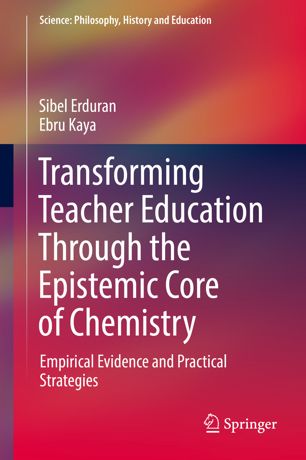

Most ebook files are in PDF format, so you can easily read them using various software such as Foxit Reader or directly on the Google Chrome browser.
Some ebook files are released by publishers in other formats such as .awz, .mobi, .epub, .fb2, etc. You may need to install specific software to read these formats on mobile/PC, such as Calibre.
Please read the tutorial at this link: https://ebookbell.com/faq
We offer FREE conversion to the popular formats you request; however, this may take some time. Therefore, right after payment, please email us, and we will try to provide the service as quickly as possible.
For some exceptional file formats or broken links (if any), please refrain from opening any disputes. Instead, email us first, and we will try to assist within a maximum of 6 hours.
EbookBell Team

4.0
76 reviewsThis book synthesizes theoretical perspectives, empirical evidence and practical strategies for improving teacher education in chemistry. Many chemistry lessons involve mindless “cookbook” activities where students and teachers follow recipes, memorise formulae and recall facts without understanding how and why knowledge in chemistry works. Capitalising on traditionally disparate areas of research, the book investigates how to make chemistry education more meaningful for both students and teachers. It provides an example of how theory and practice in chemistry education can be bridged. It reflects on the nature of knowledge in chemistry by referring to theoretical perspectives from philosophy of chemistry. It draws on empirical evidence from research on teacher education, and illustrates concrete strategies and resources that can be used by teacher educators. The book describes the design and implementation of an innovative teacher education project to show the impact of an intervention on pre-service teachers. The book shows how, by making use of visual representations and analogies, the project makes some fairly abstract and complex ideas accessible to pre-service teachers.